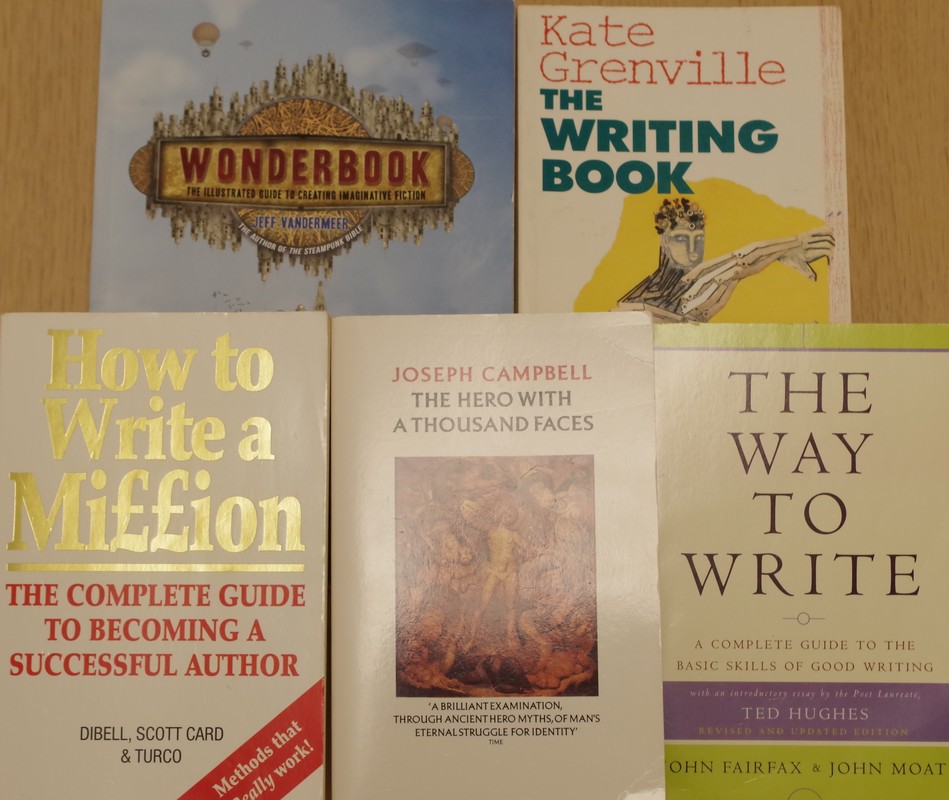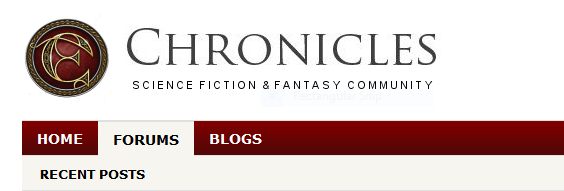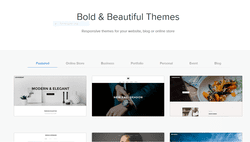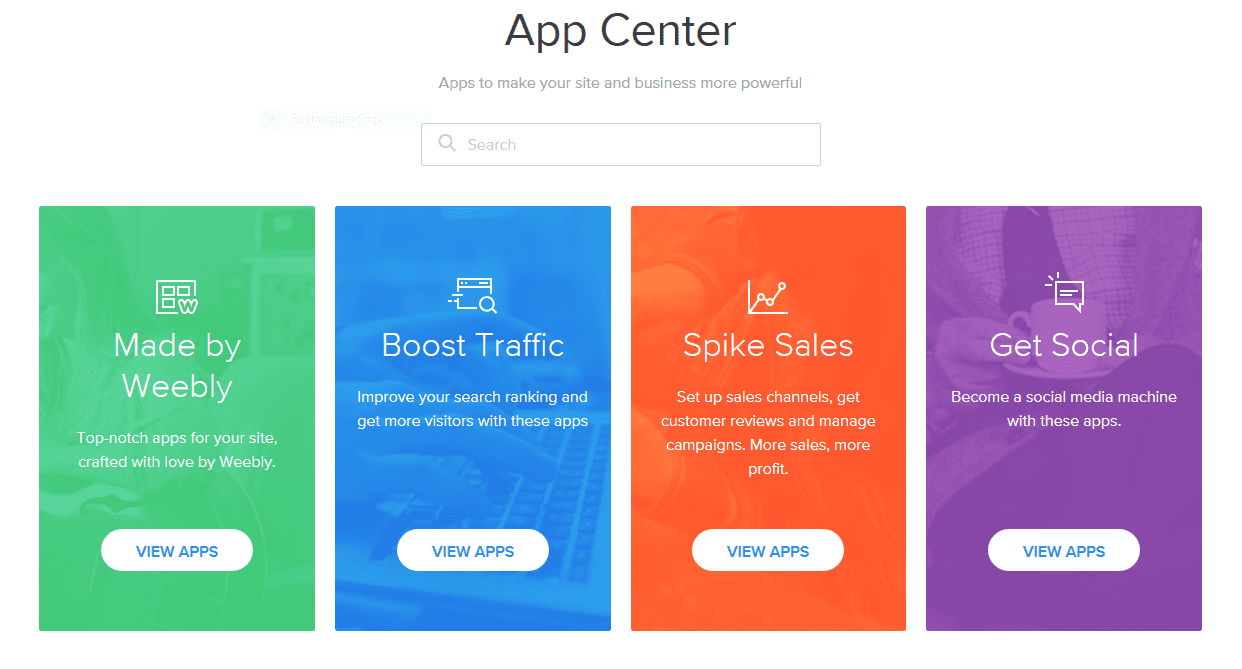|
"If you don't have time to read, you don't have the time (or the tools) to write. Simple as that." Stephen King Reading is crucial for authors and, as Stephen King argues, if you really want to write novels, you have to find the time to read regularly, however tricky that can be in our busy lives! I grab every spare reading moment I can (travelling to work on a train is a good time) and I try to read as widely as possible. For every book you read will in a positive way influence your own work: reading will show you what's possible in creative writing, and give you a sense of what you like and what you don't like. And as well as reading novels, short stories and poems, there is no shortage of books giving advice to aspiring authors and their quality is highly variable. Some will offer a sure-fire route to becoming a bestselling author – my advice is to give these books a wide swerve (with one honourable exception I will discuss below). In this post I discuss seven books I found genuinely useful and inspiring – all have helped me on my writing journey. Some will be familiar, some perhaps less so, but they are all worth a look. I won’t claim this list is exhaustive, and not every title will be to everyone’s taste – but at different levels these books all worked for me. I appreciate reading reference books takes valuable time, time you'd much rather spend writing your novel, but I believe these examples are worth the effort. For ease of reference, I have added links to each book’s Amazon.co.uk pages (other booksellers are available!). How to write a million – Ansell Dibell, Orson Scott Card and Lewis Turco This was the very first book I bought on the subject of writing (purchased in Preston, Lancashire where I was a student, many years ago!). Yes, the title of the book is awful and in most circumstances should be enough for you to throw it into the nearest bin, but that would be a mistake. How to write a million is effectively a compilation of three books: ‘Plot’ - Ansell Dibell ‘Character and Viewpoint’ - Orson Scott Card ‘Dialogue’ – Lewis Turco I first read this book as, in novel-writing terms, an absolute novice. I knew I wanted, needed, to write, but even then I could recognise my first clumsy efforts were awful so decided to seek out some professional advice! What this book gave me were clear examples of how stories and characters are structured and developed, and the examples were ones I was often familiar with, from books such as Watership Down and A Christmas Carol, and films like The Empire Strikes Back. The book was accessible, it explained concepts in a form that I, as a novice, could understand, and in doing so opened up a new seam of understanding for me. I would strongly recommend this book to anyone at the very start of their writing journey – it has been a good companion to me for over twenty years. The way to write – John Fairfax and John Moat A slim tome, first published in 1981, but this little book is an invaluable guide to honing your writing style. This book enhanced my understanding of the mechanics of creative writing: rhythm, conciseness, colour, imagery. With a host of examples drawn from poetry, and instructive, inspiring quotes from famous authors, I still find this book useful and dip into it from time to time. The Writing Book – Kate Grenville I had just started writing in earnest (mainly short stories) when I stumbled across this book by Australian author Kate Grenville, and it proved a wise purchase. This is very much a workbook, with detailed exercises forming a step-by-step guide to the process of writing fiction. Kate Grenville’s book leads you from the early stages of creating ideas / building characters right through to revision and publishing. This is a serious guide to creative writing, and one that benefits authors who either want to rework a story that have written or who are starting from a blank page. Hero with a thousand faces – Joseph Campbell This book certainly is well-known and is as influential in cinema as it is within literature – George Lucas, for example, always acknowledged his interest in and debt to Campbell’s work. Within Hero with a thousand faces, Campbell works mythology from across the work to reveal characteristics and features common to heroes from different cultures and periods, culminating in the hero’s journey concept, the stages that form an archetype of all human myth. Campbell draws on a wide spectrum of figures from folklore and religion (for example, Wotan, Jesus and Apollo) to demonstrate his theories. It is heavy, dense content, but I find this book fascinating as a writer and as a lover of mythology. Many reject Campbell’s theories; without doubt there are sound arguments against the concept of the hero’s journey – too vague, too male-focused, weakens the depth / texture of the original stories – but I believe he has some compelling ideas and would urge anyone interested in the structure of stories to read his work and then make up their minds as to the worth and applicability of his theories. The writer’s journey: mythic structure for writers – Christopher Vogler Vogler’s book is based heavily upon the aforementioned Hero with a thousand faces, and is written mainly for screenwriters. However, there is much here to savour and learn for the novelist too. How much use you find this book will depend on what you think of Campbell’s theories (see above!) but I find The writer’s journey an invaluable tool when first shaping the structure of a story (see here for an earlier blog post on how I planned This Sacred Isle). The book is thoughtfully presented and illustrated, and an enjoyable read. On Writing: A memoir of the craft – Stephen King There’s probably not much else to say about this book, other than if you haven’t read it, then really you should! On Writing covers King’s writing experiences, and in doing so he passes on valuable advice to writers, especially about shaping plot and using dialogue. This is not a ‘writing guide’ per se, but it is full of interesting nuggets and hardboiled, hard-won guidance. Wonderbook – Jeff VanderMeer And now for something completely different! Wonderbook is an illustrated creative writing book, aimed mainly (though not exclusively) at writers of the fantastical (SF, Horror and Fantasy authors will find reams of good material to explore here). I first read this book as I was beginning to edit This Sacred Isle, and it helped me to see some different perspectives on my work, especially in terms of narrative design and testing my characters. The heavily visual approach is innovative and, combined with thorough instruction on key areas such as plotting, structure, characterisation and world-building, forms an original (and entertaining) guide. And as a considerable bonus, Wonderbook also contains articles / interviews with writers such as George R. R. Martin, Neil Gaiman and Ursula Le Guin. Wonderbook is most helpful for writers at the early / intermediate stages, but I believe any writer would find inspiring and compelling material within this book. And for writers of the fantastical, I would say it is a must-read! I believe all these books can help authors develop their creative writing skills. Of course, such guides can only complement what you learn through reading other novels, professional feedback / critique and writing practice, but they can have a valuable place in your development and the best ones are an enjoyable read in their own right. What creative writing books have you read? Got any suggests for other books to help authors? Leave a comment and join the conversation.
2 Comments
For the rest of January 2017, there is 25% off This Sacred Isle ebook at Smashwords. Enter the Dark Ages and discover a land of warriors, ancient magic and dragons! Click below to find out more and purchase your copy.
It is easy for authors to feel isolated - all those long lonely hours spent at the keyboard are not conducive to an active social life! But contact with, and support from, other authors is important, so how can we achieve this? One of the best ways is to join an online community, where you can share ideas, writing experience and motivate each other to keep going when the writing gets tough. The best online community I have come across is SFF Chronicles, which is a Science Fiction and Fantasy Community. Through the forum I have been able to connect with other authors and readers, and as well as finding support and encouragement, there are also a host of topics covering books, films, games, politics etc. If you are an indie author writing SF / Fantasy books, (or just a fan of the genre), I strongly recommend joining this community - from my own personal experience, when I published my most recent book, This Sacred Isle, the SFF Chronicles community were very supportive; a nice morale boost at a tricky time! So, I am very pleased that author Brian G. Turner, the founder of SFF Chronicles, has kindly agreed to an interview discussing the community and his own writing. What motivated you to start SFF Chronicles? It was originally a support forum for my writing. However, by 2003 I realised that I wasn't going to be published any time soon, so decided to broaden the forums remit - and also host it separately. There's been a huge amount of work behind the scenes over the years. Trying to make a success of a forum is not for the faint-hearted. I've seen plenty die-off because the owners couldn't retain an interest, allow for the time needed for maintenance, or handle technical problems. How can communities such as SFF Chronicles help indie authors? The most surprising way is the professional contacts that can be made - for examples, editors, artists, and beta-readers. There's also the ability to get critical feedback on your writing - I've had so many useful and insightful comments over the years. By that I'm not talking about plot, character, and spelling / grammar, but more serious technical points of POV use, emotional development arcs, and structure, for example. Then there's the ability to connect with readers once finally published. Frankly, without the forums, I would struggle to reach readers when the marketplace is so flooded with new books. What have you found to be the most rewarding aspect of running SFF Chronicles? Probably the social aspect in meeting people with similar interests. Writing is a solitary and often lonely job. I don't mind that, but the chrons forums helps provide a social outlet I would not easily have. I also don't know many people in real life who read regularly - let alone in the genres I'm interested in. So it's great to be able to connect with other people in the forums to talk books, whether it's favourites, ones that I'm reading, or others that I've read. I also enjoy seeing links to interesting stories, features, or articles. I have a big interest in history, and so do some of our members. It means I find information I wouldn't easily come across. You’ve recently published Gathering, the first book in your Chronicles of Empire series – what can readers expect from the novel? The unexpected! The basic premise is that it's an epic fantasy - but it has far more of an historical feel than most. There's also a major science-fiction element to the plot, which is revealed in the opening chapter. After that, the story develops with what appears to be a fairly familiar and traditional band of adventurers. However, not long after that, I start work on challenging the tropes, stereotypes, and expectations that a reader might normally expect of such a book. By the end of the story, the reader should be left feeling that they've read an original and entertaining story, that defies easy comparison with other novels. You've developed a whole fantasy world for Gathering – what kind of research did you carry out? I came up with the idea for the series in the 1990's, but I wanted a sense of historical detail to make it feel more authentic. So I began researching as much as I could about ancient and mediaeval history. I haven't stopped. So anyone who picks up Gathering can easily find all sorts of references to Ancient Rome, Byzantium, and Mediaeval Northern Europe. However, the details are in the living history rather than political history. So when the reader enters the city of Corianth with the characters - the setting for most of the book - they will be experiencing something analogous to what a Mediterranean city might have felt like in Mediaeval times. When will the next book in the Chronicles of Empire series be published? I'm aiming for a Dec 2018 publishing date. However, it's very difficult to write a true multi-character story. Most novels feature a single protagonist, perhaps with a love interest and best friend and a couple of supporting points of view. The result is that the main character goes from point A to point B, then C, etc. It's a simple and linear progression. With multiple characters, while one is going from A to B, another is going from A to C, another from B to D, etc., and all the time their stories are intersecting and impacting each other. It makes it much more challenging to write. I can totally appreciate why George R R Martin takes so long with his epic series - then again, he has a lot more characters! Thank you, Brian. To find out more about Chronicles of Empire, go to: http://www.chroniclesofempire.com/ And there is a Chronicles of Empire discussion page at: https://www.sffchronicles.com/forum/brian-g-turner/
For the rest of January 2017, there is 25% off The Tree of Life - The Complete Trilogy ebook boxset at Smashwords. Pick up your copy today and enter a world of myth, magic, muskets and adventure! Click below to find out more and purchase your copy.
A website is an essential requirement for any author. It is a great way to connect with readers and other authors, share content and promote your books. Assuming you're not a web designer (or don't have the budget to hire one), what are your options for creating your own website? Choosing a website builder In 2016, when I wanted to set up a new website to coincide with the release of This Sacred Isle and the re-release of The Tree of Life trilogy, I started researching the possible options. Many authors use WordPress.org to build websites and it is clear why this is a popular choice. WordPress.org is free to use (although you will have to pay for a domain name and hosting) and gives users a huge amount of flexibility. The range of plugins (both free and premium) is vast, running into the thousands. But after some research, I concluded that (as a non-technical person) the learning curve required to set up a website using WordPress.org (and the ongoing maintenance) would require too much time, time I preferred to use for writing! So I decided to use a website builder (tools that allow users to construct a website without manual code editing), of which there are many, some of the most popular being Wix, Jimdo, Go Daddy, Weebly and SquareSpace. Although all have their advantages and disadvantages, there are numerous websites that compare and contrast the various website builders, so this will help to guide your choice. It is important to decide the purpose and scale of your website, i.e. will it be a mainly an information site or do you want to use it as an e-commerce site, a shop front selling and distributing your books? Take time to decide on your requirements, jot them down and then compare with the features offered by the website builders. Price is clearly a factor as well, although very broadly, I found the prices of most providers were similar. All the website builders offer various plans and you can always take advantage of offers and voucher codes if you can find them! After much consideration, I decided to use Weebly to build my website. Although there were some areas that other website builders had the edge on Weebly, overall I felt Weebly offered the solution that best met my needs. Weebly offers a number of plans (Free, Starter, Pro, Business and Performance) - I selected Pro, which works out at £8 a month if paid annually. Building a site in Weebly To start building your site, Weebly has a large range of themes, templates you can customise as you require. The available themes are clean and modern, and all are mobile responsive (crucial nowadays as much of your traffic will be via phone and tablet) and it is worth noting that you can actually edit your site using mobile devices. I'd be very surprised if you can't find a Weebly theme suitable for your needs, though if you want to look further afield, there are some (paid) templates available from third-party providers. In order to decide on your theme, I would advise looking at the websites of other authors (from a range of genres) - this will give you ideas for the kind of layout that best suits you and your books. For my website, I wanted a relatively minimalist look (with lots of white space!), one that echoed the cover designs of my books, and so selected a Weebly theme that best matched this approach. Once you have selected a theme, you can begin adapting it using Weebly's 'drag and drop' editor. This allows you to select and move elements such as text, images, forms, maps and videos where you want them on screen. I found the editor generally intuitive and easy to use - and to reiterate, there is no coding required unless you want to make more detailed changes to your theme template. As Weebly is a WYSIWYG (What You See is What You Get) builder you will see immediately how your website will look once published, you don't need to flick over to a preview mode. It is easy to organise your website, although I would suggest spending some time beforehand working out on paper the structure of your site. Weebly has a store of photos (both free and paid), which you can use to augment your content. The range is impressive and I have used a few free photos on this site. There are also ready-made icons for social media, making it easy to link your website to your twitter, Facebook, LinkedIn etc. accounts. Getting in touch: support, community, apps and blogging There is a vibrant Weebly community and I have been able to pick up some very handy tips from there. I've only used Weebly's customer support once (via a support ticket), but found them helpful and responsive. Weebly has a growing app store, with an interesting range of free / paid apps - I haven't used them yet so it's hard to comment but I'm sure more advanced website developers might find these advanced tools useful. The apps are a mix of free and paid, although some of the paid apps have free 'test' periods - a good way to try before you buy. Weebly's blogging functions are simple but effective, with a decent range of options (you can incorporate the usual elements such as text, photo, video etc.) and the 'Post Options' tab allows you to schedule your posts and add your SEO settings and functions (e.g. keywords, descriptions and titles). I think there is scope for further development of Weebly's blogging toolset but as they stand, they are adequate. I have synched this blog with my Goodreads profile, which allows me to reach an even wider readership.
Performance and site statistics How about day to day functionality of the site? Weebly obviously hosts your site (you don't need to pay separately) and takes care of technical / security issues. I have not noticed any downtime - the site loads swiftly and there are no ads. Again, I am not a technical expert, but I have not encountered any issues of concern. If you wish to, Weebly allows you to archive / export your website to another host. You can access site statistics through Weebly, specifically looking at the number of hits your pages have received and the number of unique visitors. Depending on your need, you could achieve more using Google Analytics, but the site information supplied by Weebly is sufficient for me. Conclusion I have found Weebly an efficient and enjoyable way of creating and maintaining a website. The cost is not prohibitive, and the 'drag and drop' editor is, after a little use, easy to navigate. I want to continue to develop my website, and I feel confident that Weebly gives me the functionality and flexibility to do this. If you're ready to start building your author website, I'd suggest you give Weebly a try - you can always have a go making a site using their Free plan (and this has no time limit so there's no rush) before committing to a paid version. How did you develop your author website? Have you used Weebly, or another solution? Add a comment below and join the conversation. |
Archives
October 2023
Categories
All
|




 RSS Feed
RSS Feed